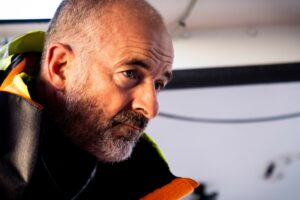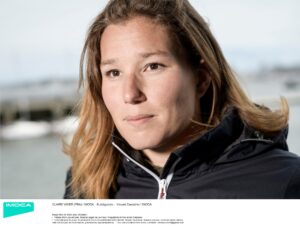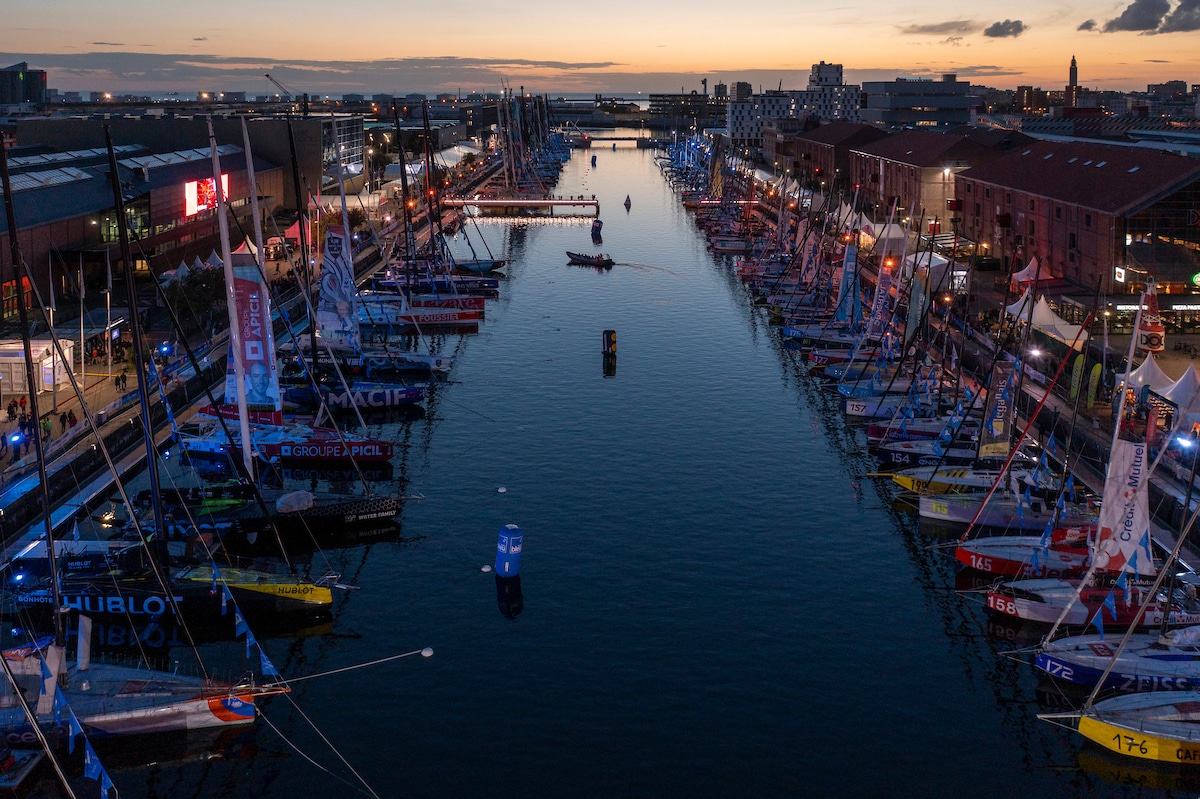GREATER COMMUNICATION REDUCES RISK TO MARINE MAMMALS
92 boats from 4 different classes prepared to set sail across the Atlantic on October 29, 2023 as part of the iconic French transatlantic race, the Transat Jacque Vabres (TJV), that happens every two years. Only, this year, there is one big difference…
(NB: The race start for the IMOCA class was postponed due to bad weather. See the TJV website for further updates)
To anyone in or following the ocean racing world, the general build-up to the TJV brings the four major ocean racing classes (Ultim, IMOCA, Ocean Fifty and Class 40) together every two years for this iconic event. With the best offshore sailors around the world competing, the race provides fans with an exciting, hyper-competitive adventure to follow, starting in Le Havre, France, across the Atlantic via the island Sal in Cabo Verde, finally finishing on the French island of Martinique in the Caribbean.
Part of the IMOCA Globe Series, most of the characters competing in the TJV are well known, including 11th Hour Racing Team’s own Justine Mettraux (onboard the IMOCA TeamWorks) and Jack Bouttell (onboard the IMOCA Initiatives Coeur). But there is also someone else from 11th Hour Racing Team there, not in a sailing capacity but with an important mission nonetheless, and that’s the Irishman and ocean health advocate, Damian Foxall.

So if 11th Hour Racing Team isn’t competing, and Damian isn’t sailing, why is he there?
Good question and there happens to be a very good answer. Damian (alongside other key players such as IMOCA) is part of an important advocacy group called the Marine Mammals Advisory Group (MMAG for short), whose mission is to enable the implementation of important changes within the sailing and boating sector, changes that will ensure that marine mammals are their habitats are being looked after by the boating community and how they use the ocean.
This year 100% of the boats sailing have incorporated a hazard reporting system into their onboard systems, which has been funded by 11th Hour Racing as part of their grant making program. The hazard reporting system is designed to enable live reporting across the fleet in the case of a sighting or making contact with a hazard whether it is an object, or marine mammal.
It’s no secret that over the last decade there is a running parallel trend between boats getting faster and collisions at sea with marine mammals increasing, often to the heartbreak of the sailors involved. Aside from the potential for significant damage, risk of death and injury on both sides, these are people who are deeply connected to the ocean and marine life and want to protect it at all costs. According to the strike log maintained by the MMAG, which collates data from the International Whale Commission, media reports, and one-to-one surveys from the sailing community, of the 350 submissions so far, between 50% and 60% of all collisions reported result in damage to the vessel as well as injury or death to marine species.
MMAG has previously published marine mammal strike mitigation best practices – which include sharing the location of a strike or near miss with other vessels, reporting a marine mammal strike (anonymously if desired) to the International Whaling Commission, and working with race organizers to plan race courses which avoid important feeding or migratory routes.
While technological advancements have the potential to minimize to a certain extent marine mammal strikes, there is no single solution for complete avoidance. As an example, the range of current technologies is at best 500m, for a boat doing over 30 knots, this is less than 60 seconds to identify a hazard, decide on a course of action, and implement an avoidance.
Damian is on site in Le Havre ahead of the TJV working hand-in-hand with Claire Vayer, the Sustainability Manager for IMOCA, and Juan Andujar from SafeWave, who are both supporting MMAG and the development of this multifaceted approach to improved watchkeeping, reporting, and risk assessment. It is thanks to their tenacity the hazard button has been so prominently embedded within the TJV fleet in this edition of the race.

The passion, vision, and expertise of people like Damian, Claire, and their wider supporters within the international offshore sailing community have allowed the discussions around marine mammal protection to be welcomed and supported at the very highest levels of the sport.
It is work like this that will ensure that the ocean, its ecosystem, and all that lives in it, are being looked after by those that love and use it the most.




